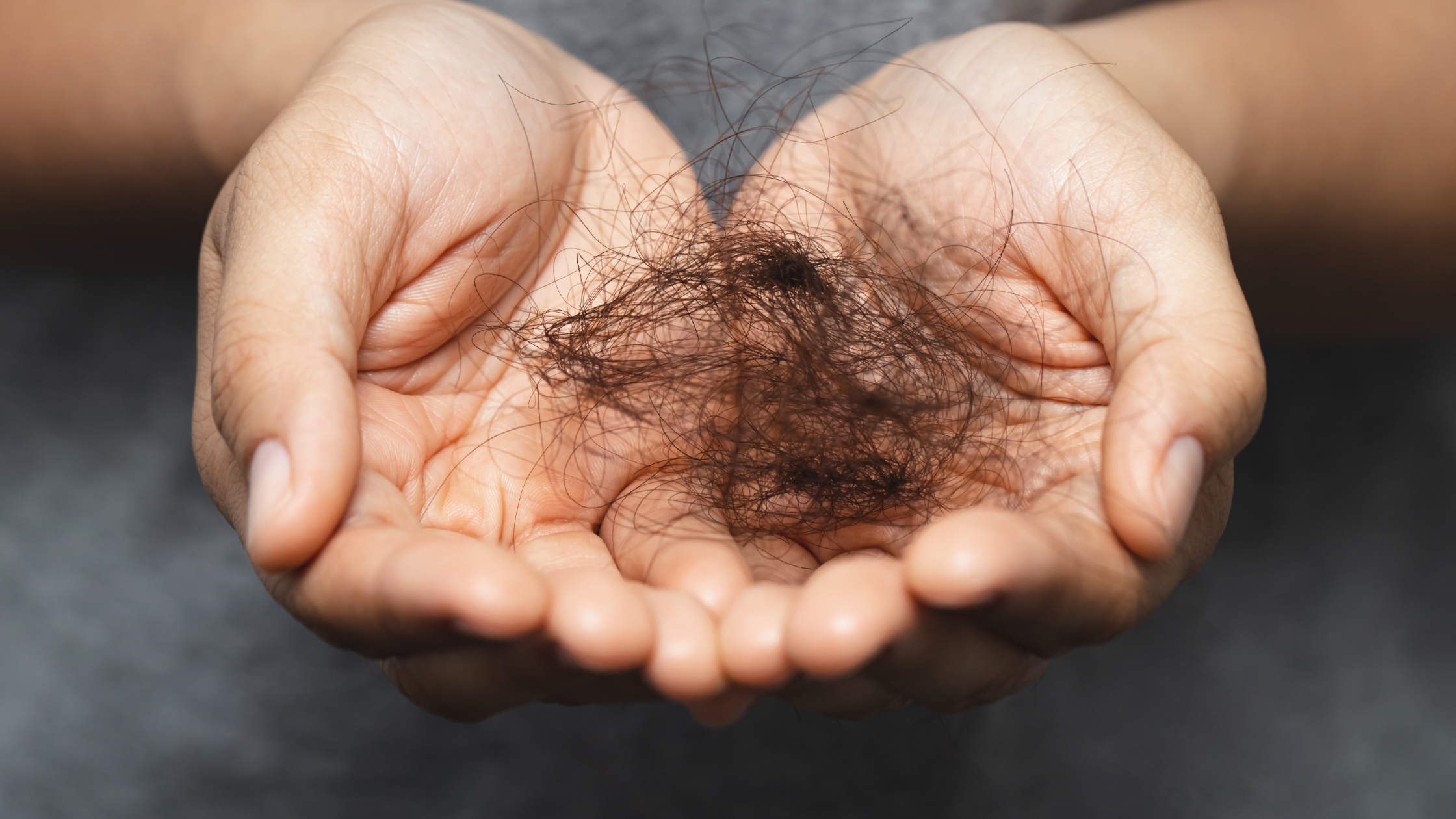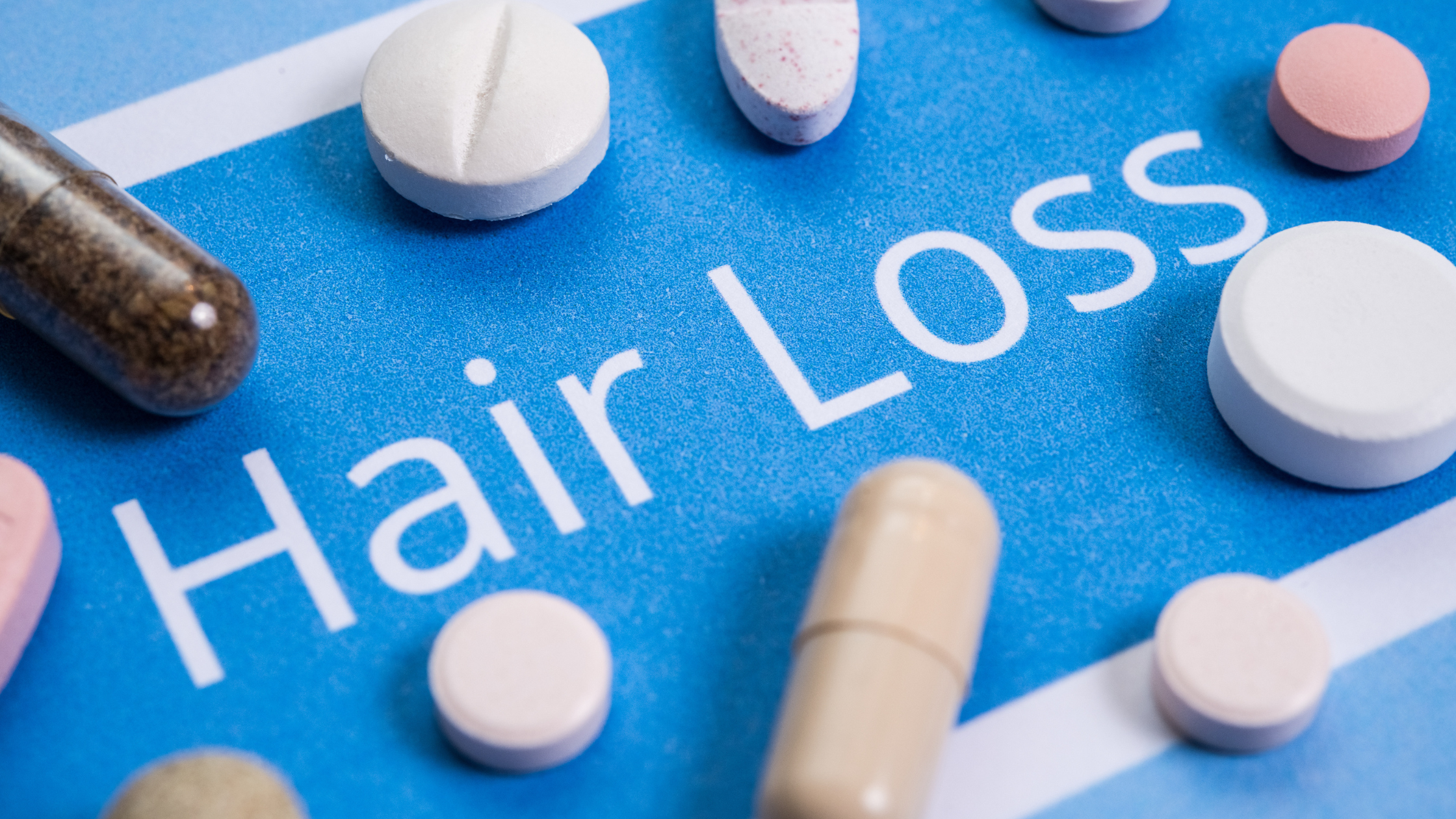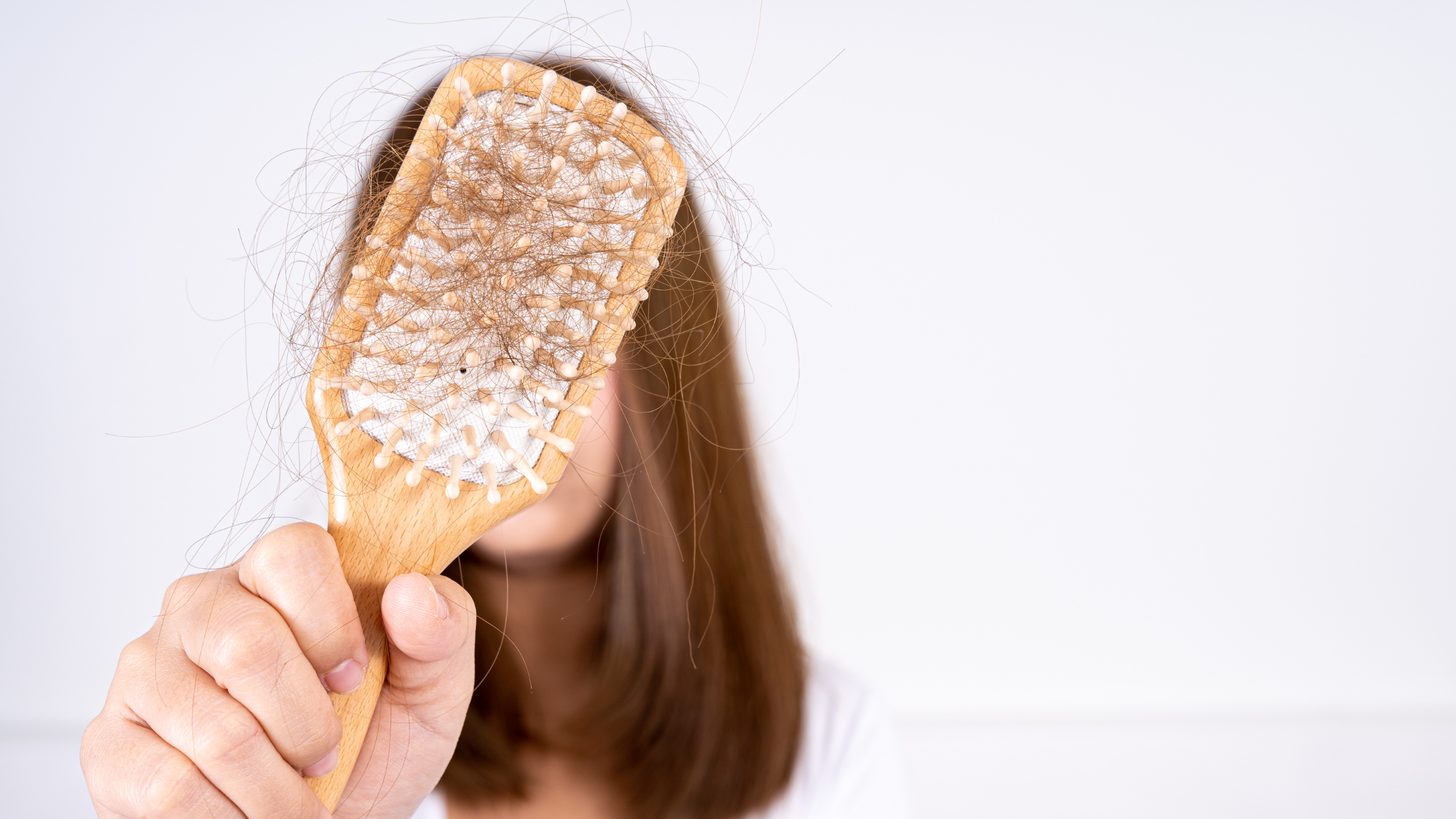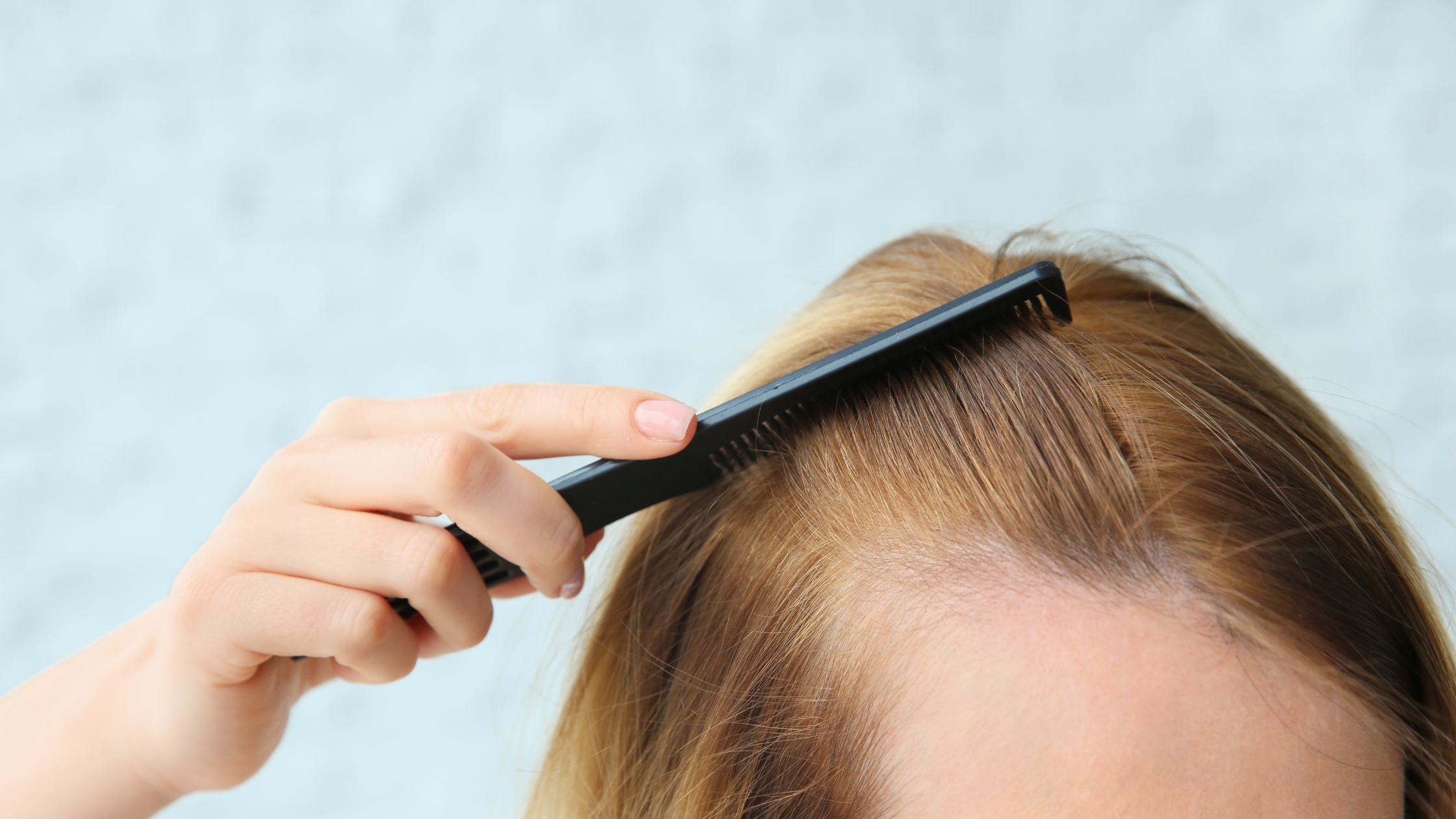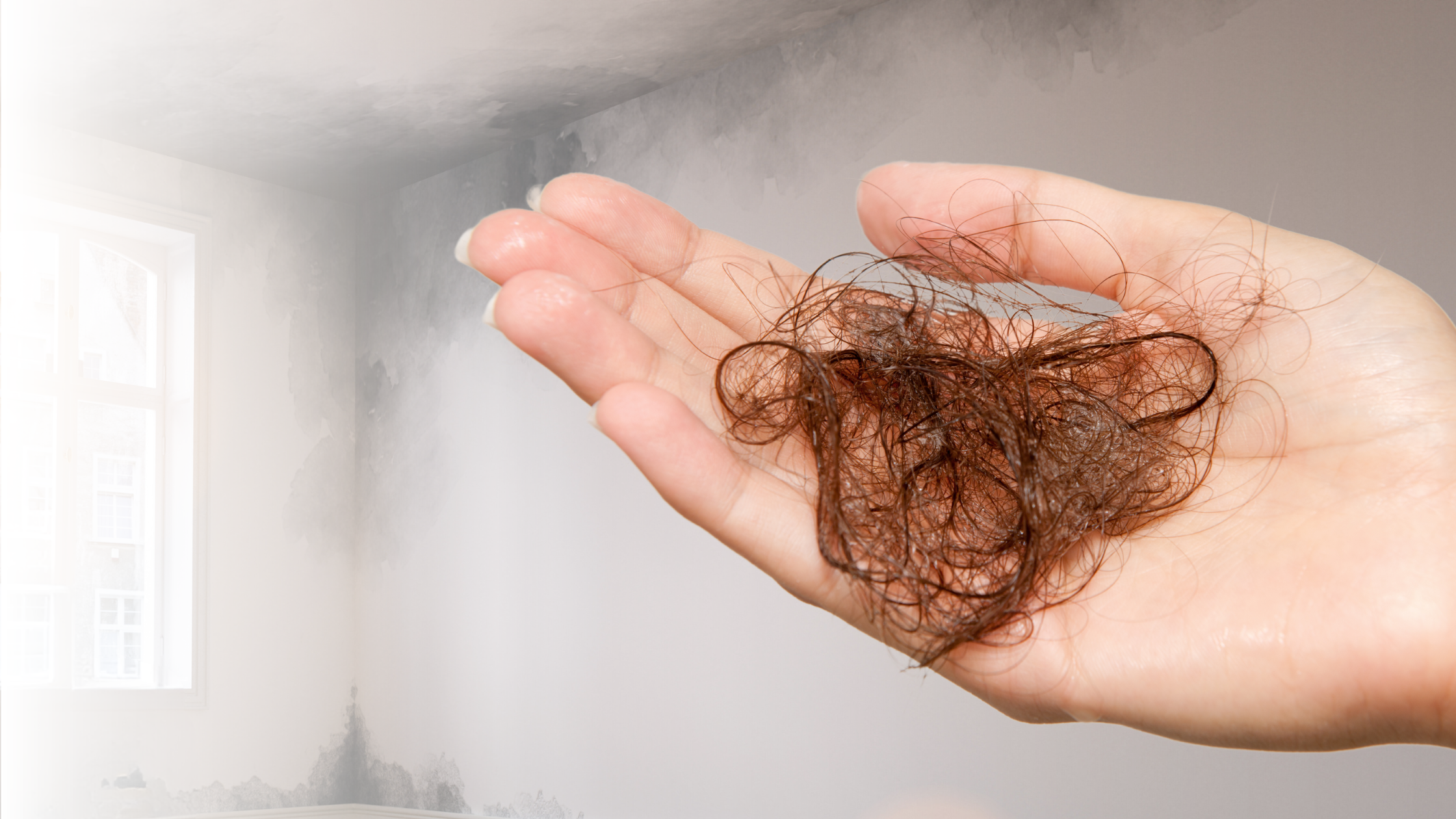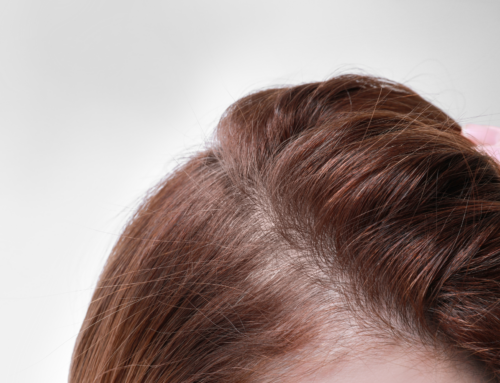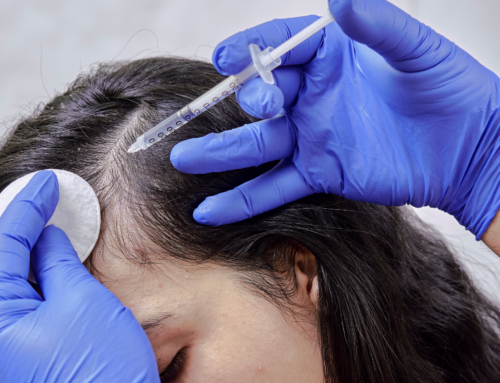The top 10 things that lead to hair loss aren’t always as obvious as they may seem. Sometimes, hair loss happens quickly; other times, it takes a while to notice, but the causes are unique to each individual, and it can take time to find out the exact cause.
While losing some hair is very normal and nothing to worry about, when you see patches of hair missing on your head, it’s frightening.
If you’re noticing thinning or loss, you’re not alone. With all the changes we experience from lifestyle to hormones and environment, people, young and old, male and female, are losing their hair.
Currently, an estimated 80 million people in the United States are facing the challenge of hair loss. Discover more about this widespread issue and the latest trends in hair restoration at Reshaping the Hair Restoration Journey.
When hair loss happens to you, it’s scary. It affects your self-image, confidence, and your relationships. You feel it emotionally, sexually, socially, and physically.
Strangely, some doctors and professionals have no clue how it feels.
“It’s not that bad,” they say, as they throw a pill or cream at you, without any thought to the long-term impact it can have on your body. One thing is certain…it is up to you to take charge of your health and educate yourself.
This article will help identify some of the things that are involved so you can determine if your loss is connected to the top 10 things that lead to hair loss.
- Medication-Related Hair Loss
Medication-related hair loss is often overlooked. Many common medications have side effects that can eventually lead to hair loss. Of course, this all depends on the individual, the type of drug, the dosage, and how susceptible a person is. Medications can halt the process of cell division in some instances and disrupt the hair cycle, which leads to hair loss.
The good news is the condition is usually reversible once the drug is discontinued, but there are some medications known to cause permanent hair loss, also known as “drug-induced alopecia.”
With long-term or chronic medical conditions, prescription medications often follow. Some of the more well-known medications known to cause hair loss include chemotherapy (cancer treatment) heparin and warfarin (blood thinners), certain thyroid medications, antidepressants with selective serotonin reuptake inhibitors (SSRIs), beta-blockers (for hypertension), gout medications, tuberculosis treatment drugs and cholesterol-lowering drugs (statins), and HIV medications. Radiation therapy to the brain, head, and neck may cause permanent stem cell damage.
Hormone treatments, birth control pills, and some steroids can also contribute to hair loss.
If you’re taking prescribed medications, be proactive. Keep a medication log along with dosages and any changes that are made. Note any side effects related to hair loss. This kind of record-keeping will help identify patterns and correlations to specific drugs and any hair-related loss you experience.
Communication with your healthcare providers is important to managing medication-related hair loss. You must be able to have an open discussion about prescribed medications and their potential side effects.
If medication is causing hair loss, you may want to consult with a trichologist (hair loss specialist) to explore adjustments or alternative plans to minimize the loss.
Collaborative efforts between healthcare professionals are key to managing this medication-related hair loss.
- Hair Loss (Menopause) Hair Loss
Hormonal hair loss is a tricky one. I’ll dive deeper into the subject in future articles, but for now, it’s important to note a strong correlation.
During menopause, there is an elevated ratio of estrogen related to progesterone. During this time, many doctors will recommend an estrogen/progesterone protocol to prolong the growth (anagen) hair phase. These two hormones can help hair stay on the head longer and may help with growth.
However, too much estrogen can trigger hair loss due to an imbalance in aromatase, an enzyme that processes estrogen.
And then there’s testosterone. I often see hair loss in women who’ve been prescribed testosterone for HRT (hormone replacement therapy). If testosterone levels are off, a woman will experience hair loss.
When there are too many or too few androgens, it can result in fallout. When a woman’s testosterone/progesterone/estrogen levels are out of balance, you’ll need a tailored approach to address these fluctuations. It’s a delicate balance.
The key here is patience. If you are undergoing HRT, find a hormone specialist or endocrinologist and an experienced trichologist if you are experiencing hair loss.
You must have regular assessments to closely monitor the estrogen/progesterone/testosterone levels and adjust them if needed. Minor adjustments can make a world of difference when it comes to menopausal hair loss.
- Nutritional Deficiencies – The Impact of Nutritional Deficiencies in Vegan Diets
Nutritional deficiencies related to veganism are more common than you might think. Although they may seem healthy, there’s no easy way to put this… In my hair loss practice, I see a lot of vegans with hair I would call “anemic”… lackluster, thin, and unhealthy looking.
Vegans – especially “raw” vegans – often lack key proteins essential for hair, skin, and nail health. This is due to many factors, but mostly poor food planning.
Nurturing the body from within from nutrient-dense foods and supplementation must be a priority. This not only prevents hair loss but also contributes to overall well-being.
Addressing specific nutritional deficiencies is crucial.
Hair is primarily made of protein. High-quality Omega 3’s from a fish source are crucial to hair health and density. Other sources, such as flaxseeds, chia seeds, and walnuts, simply do not convert the ALA (the type of Omega 3 in plant sources) to EPA and DHA, as fish sources do.
Zinc plays a key role in tissue repair and growth, and while it can be obtained from legumes, nuts, and seeds, it might not be enough for some.
Iron from non-heme (plant) sources can also create deficiencies (including anemia) over time. Vitamin B12 deficiencies are also common.
Vegans, be proactive in monitoring your diet for potential nutrient deficiencies that can lead to hair loss. It’s not uncommon for individuals on a long-term vegan diet to experience hair thinning due to nutrient gaps. Regularly evaluate your diet for any signs of nutritional shortfall to combat this. In cases where dietary changes are not enough, supplementation might be necessary. For those seeking a solution, consider the Cellustrious® Ultimate Hair Restoration 90-Day Nutraceutical Supplement, specifically designed to support hair health. Learn more and purchase your supply here.
Professional assessments and lab tests will identify potential issues and are worth the effort and cost.
This is a subject we will dive more deeply into in future articles, so stay tuned if you think your hair loss might be due to nutritional deficiencies related to veganism.
- Nutritional Deficiencies – Rapid Weight Loss
Nutritional deficiencies from Rapid weight loss can start with shedding or thinning. While losing excess weight is something to celebrate, it can strain the entire body. Hair loss after extreme weight loss or bariatric surgery that triggers shedding is known as “telogen effluvium.”
I see patients with hair loss due to bariatric surgery, weight loss drugs, and injections. The more common ones are Ozempic, Wegovy (semiglutide), and Saxenda (liraglutide).
This type of hair loss is usually temporary, occurring 3-5 months after the weight loss. When the body is missing essential nutrients due to restricted food intake or poor absorption, it can affect how the whole body functions.
If you’re planning bariatric surgery, a rapid or long-term weight loss regimen including major diet changes like keto, vegetarian, vegan, “carb-cutting,” or intense workout regimen, you should have a plan to mitigate changes if you see shedding.
Inadequate levels of essential protein, vitamins (especially B vitamins), biotin, minerals like iron and zinc, and essential fatty acids (Omega 3’s) are directly connected to thinning, brittleness, and hair shedding. Supplementation can address these deficiencies.
Post-weight loss care is essential for maintaining healthy hair. It can take 6-10 months to turn the condition around, and it may not be fully restored until the body’s nutritional status improves significantly.
Help from a nutritionist, a trichologist, and a mental health professional may be needed for recovery from Nutritional deficiencies from Rapid weight loss.
- Hereditary
Hereditary hair loss assumes the predisposition to hair thinning and loss due to genetics. There is still a lot we do not know, and new research will certainly reveal more.
Both Female and Male Pattern Hair loss are thought to have a hereditary component. This type of hair loss is “polygenic,” which means the genes can be inherited from the mother’s or the father’s side or both sides equally.
Genetic testing can offer some insight into hereditary tendencies and give us genetic markers or patterns associated with hair thinning and loss.
In my experience as a trichologist and hair loss expert, I rarely see cases of pure hereditary hair loss. Most hair loss is a combination of several factors, one of which may be a genetic predisposition.
That said, the causes of Male Pattern Baldness and Female Pattern Baldness have different markers and patterns.
Female Pattern Hair Loss
While research suggests Female Pattern Hair Loss (FPHL) may be caused by DHT acting upon the hair follicle, causing miniaturization, there is still uncertainty as to the trigger and cause.
Research shows a reduction in the activity or amount of “aromatase,” the enzyme that converts certain male hormones “testosterone” in the scalp into “estradiol” female hormones – may be the reason for the difference in clinical appearances between male and female pattern hair loss.
FPHL occurs with normal systemic androgen levels about 30% of the time, while the rest of the time, it’s thought the circulating androgens (DHEA and DHEA-S) and testosterone and DHT are the cause.
It’s the increased output of the ovarian and/or adrenal androgens that may be associated with female hair loss. Unknown growth factors may contribute.
Women can be affected by genetic hair loss at any age after puberty. If there are no underlying hormonal problems, female hair loss is usually attributed to menopause due to changes in the female-to-male hormone ratio.
Male Pattern Hair Loss
Male Pattern Hair Loss has always been atributed to “dihydrotestosterone” (DHT) a derivative hormone of testosterone that occurs when it is acted on by the 5-alpha-reductase. Testosterone can bind to the androgen receptor or the hair follicle or can be converted to dihydrotestosterone before binding. The DHT shortens the growth (anagen) phase of the hair cycle and forces them into the resting (telogen) phase.
This causes the follicles to shrink in diameter and length with every cycle of hair growth, making the hair thin and wispy.
The theory is that the DHT “sensitivity” triggers a collagen build-up around the follicle, shrinking its size. Eventually, the follicle seems to “disappear,” which is when things get a little murky.
Some research suggests the follicle dies, but new research shows the follicle is not dead, just “dormant.” The question then becomes, “Can the follicle be re-triggered”? In some instances, the answer is “yes,” and in other instances, “no,” depending on how long the follicle has been dormant and the person’s health. Some studies show the follicles may be regenerated if treated appropriately.
If we address the genetic factors and activate the genes associated with healthy hair growth, we may be able to lessen the impact of hereditary tendencies on hair health. This is where epigenetics comes into play.
Epigenetics is the study of the changes in organisms caused by modifying gene expression rather than altering the genetic code itself.
Up until twenty years ago, scientists believed our genes determined all of our biology, from our height to how much hair we had. Discoveries in epigenetics prove our genes aren’t “one dimensional” with single-purpose relationships.
Everything from our air to the food we eat affects the genes we express. While we might carry the gene for a rare cancer, if we live in ways that never activate that gene, we don’t have to develop that cancer.
Studies indicate that the development of diseases is influenced more by the genes our bodies activate or deactivate than by the genes we inherit. By pinpointing the elements that affect gene expression, we open possibilities for preventing and potentially reversing various diseases. This understanding not only impacts the understanding of disease mechanisms but also shapes future treatment strategies. Learn more about how gene expression plays a critical role in health at MedlinePlus.
When it comes to hair loss, one theory is that we can reduce exposure to factors that promote hair loss and increase exposure to things that help with growth.
Even though hair loss tends to be a chronic and inherited condition, we possess the ability to affect how our genes behave. By influencing gene expression, we can activate those linked to hair “growth” while deactivating those responsible for hair “loss.”
The Cellustrious® treatment protocol I use assumes we may be able to affect gene expression by turning certain cells “on” and others “off” using peptides as signaling molecules to reverse the conditions that precede hair loss and regrow hair.
The most important things we have CONTROL over are our diets, lifestyles, and microbiome, even when it comes to hereditary hair loss.
- Toxicity and Hair Loss
Toxicity and hair loss due to toxic exposure are often overlooked by medical professionals when it comes to hair loss, but it may play a large part in hair loss, and toxins affect our cellular health.
Cells need to be healthy to support hair growth and density. When we’re exposed to toxins, we express chronic health issues. These chronic conditions are at the root of many health problems and issues. People who are exposed to harsh chemicals, products, and environments might not realize it is linked to hair shedding and loss.
With toxins, the whole body is affected. The relationship between our hormones and how they interact with toxins – especially neurotoxins – may offer some clues on the systemic conditions that can lead to hair loss.
The biggest culprits include harsh chemicals, products and appliances, fluorinated water, unhealthy air, mold, toxic food and fats, amalgam fillings, beauty and hair products, and neurotoxins.
It’s important to limit the use of toxic substances in cleaning agents and personal care items in general, especially if there is sudden or excessive hair loss, shedding, or thinning.
The body has hormone receptors in every single cell, and hormones need to be in the cells to communicate with them. When toxins build up in the cells, they interfere with a gene’s ability to express itself, leading to hormone resistance.
This leads to cellular inflammation. As we’ll see shortly, inflammation is a precursor to the issues that end up with hair loss.
The best way to deal with it is to drive toxins out of the cell and turn the hormone communication of the “good” genes “on” and the “bad” genes that have been stimulated “off.”
If you are experiencing hair loss and haven’t been diagnosed by a medical professional or think your exposure to such chemicals or irritants, find a reputable functional medicine professional, endocrinologist, allergist, acupuncturist, or naturopath.
Look for providers who specialize in allergies so they can pinpoint the specific toxins that are affecting your skin and hair. They may suggest detoxification protocols for the effects of toxicity and hair loss.
- Microbiome Imbalance Hair Loss
Microbiome imbalance hair loss is one of the least studied areas with hair loss. Because of that, we have to rely on anecdotes and related research to form a logical theory.
The microbiome is the genetic material of all the “microbes” – bacteria, fungi, protozoa, and viruses – that live inside and on the body. It includes microbes that are helpful and harmful. Most of the microbes work together harmoniously, although some are pathogenic (disease promoters). In a healthy body, pathogenic and symbiotic microbiota coexist without problems.
If there’s a disturbance in the balance from infectious illnesses, certain diets, or prolonged use of antibiotics or bacteria-destroying medications, “dysbiosis” occurs. This stops the normal interactions of the microbiota.
As a result, the body becomes more susceptible to disease.
Our gut health is largely neglected. Chronic antibiotic use and poor diet consisting of GMOs, processed sugars, and chemicals contribute to problems like leaky gut, IBS, and chronic intestinal inflammation.
A key step in a healthy microbiome is a diet that supports gut health.
I recommend probiotic-rich foods such as yogurt, kefir, sauerkraut, and kimchi, which help cultivate “good” gut bacteria. Minimize processed sugars and genetically modified organisms (GMOs) if you want a healthy microbiome.
These dietary shifts not only benefit gut health but play a crucial role in slowing inflammation, which is associated with hair loss.
Our lifestyle choices change the composition of our guts, as well as the bacteria that control the foods we crave, the hormones we produce, and the way our bodies fight infection.
Reversing microbiome damage and restoring gut health and microbiome balance is key. A balanced and thriving microbiome supports digestive health and influences systemic inflammation, impacting overall hair vitality.
Properly nurturing our microbiome and gut health is crucial in combating hair loss due to microbiome imbalance. Discover how the Cellustrious® Ultimate Hair Restoration Nutraceutical Supplement can aid in this process at Cellustrious Hair Rejuvenation.
- How Chronic Inflammation Can Lead to Hair Loss
Chronic inflammation is generally overlooked but much more common than you might think.
Conditions like a virus that doesn’t go away, an autoimmune condition, a thyroid condition, COVID-19 (A 2023 study shows over 30% experienced hair loss), or an ulcer that doesn’t heal can have lasting impacts.
While the condition is usually temporary, it can lead to conditions in the body that impact hair vitality. **
Inflammatory conditions, especially chronic ones, affect the function of hair follicles long-term. This disruption weakens the follicles, making them more susceptible to the effects of other contributors to hair loss.
If inflammation progresses to the point of calcification in the scalp, it can cause structural changes around the follicles, stopping their ability to produce healthy follicles.
Studies show calcification and fibrosis on the scalp are also the result of chronic inflammation. Here’s how:
- Chronic inflammation can disrupt the normal functioning of follicles, leading to miniaturization, decreased hair growth, and even cause follicle death.
- Scarring: prolonged inflammation followed by calcification can result in central centrifugal cicatricial alopecia, CCCA. Scarred areas won’t support healthy hair growth, leading to permanent hair loss in those regions.
- Interrupted Hair Growth Cycle: Inflammation around hair follicles can disrupt the hair growth cycle, prematurely pushing hair into the resting (telogen) phase, leading to increased shedding or decreased new hair growth (anagen phase).
- Reduced Blood Flow: Inflammation and calcification affect blood vessel health and blood flow to the scalp. Circulation is vital for delivering nutrients and oxygen to hair follicles. Reduced blood flow can starve follicles.
- Follicle Compression: Calcification around hair follicles can cause structural changes or compression, reducing the follicle’s ability to make healthy hair strands.
If you suspect inflammation is causing your hair loss, consider the following tips to reduce inflammation and improve thyroid function.
Effectively managing chronic inflammation is key to hair health. Lifestyle and dietary changes can reduce chronic inflammation, promoting stronger, healthier hair.
A diet rich in quality fish products and essential nutrients, vegetables, fatty fish, nuts, seeds, antioxidants, and other foods known for their anti-inflammatory properties will make a difference.
Prioritizing stress reduction techniques is crucial to combat chronic inflammation.
Stress reduction directly influences inflammatory responses, minimizing their long-term effects on the body and hair health. Mindfulness practices, meditation, and adequate sleep are effective strategies for lowering stress levels related to Chronic inflammation.
- Lifestyle
Lifestyle choices play a large role when it comes to the health and vitality of our hair, and it’s not always as straightforward as we might think.
While it’s widely acknowledged that harsh chemicals, heat exposure from styling tools, and certain hair practices like bleach, straighteners, or tightly braiding hair can visibly damage and weaken strands, other habits surprisingly contribute to hair thinning and loss.
Consider the effects of intense workouts. Excessive physical activity, particularly when coupled with the use of supplements like creatine or testosterone, may affect hormone levels. Imbalances in testosterone caused by supplementation and steroid usage can trigger and exacerbate androgenic alopecia, making follicles more sensitive to hormonal changes.
Habits like frequent shampooing or regular hot baths, saunas, or hot showers may have a negative impact. They can disrupt the scalp’s natural balance, leading to weakened hair and increased shedding, and affect men’s testosterone levels.
Deficiencies in Vitamin D3 or imbalances in iron levels have been linked to hair problems. These deficiencies can influence the growth cycle, leading to increased hair shedding or slow regrowth.
The use of antibiotics, while necessary for treating infections, can also upset the delicate equilibrium within the body. It’s important to moderate the use of antibiotics and be aware of the potential for impacting hair health in the process.
In upcoming articles, we’ll explore how lifestyle can impact hair health. Understanding empowers us to make informed choices for healthier, stronger hair and a high-quality lifestyle.
- Stress-Induced Hair Loss
Stress-induced hair loss. We all have stress, right? Some of it’s unavoidable, but it can have a big impact on the hair over time if it is chronic. This can induce the type of hair loss known as “telogen effluvium.”
When the body undergoes significant stress—whether emotional, physical, or psychological—it can disrupt the hair growth cycle.
Normally, hair follicles go through phases of growth, rest, and shedding.
During times of increased stress, a larger number of hairs can enter the resting phase (telogen) prematurely, causing an increase in overall hair shedding.
Chronic stress can affect the immune system, leading to conditions like “alopecia areata,” where the immune system mistakenly attacks the hair follicles, resulting in patchy hair loss.
Anything that interferes with the ability to generate sufficient quantities of energy can interfere with the repair and renewal processes of cells, leading to atrophy, infirmity, and a loss of functioning of tissues and organs.
This lack of energy has a “ripple effect” through the entire organism, as cells form tissues, tissues form organs, and organs form whole organisms.
A complex “mini-organ,” the hair follicles in people with hair loss show signs of maladaptation and stress.
Maintaining a balanced lifestyle is equally important in minimizing stress-induced hair loss. Adopting a holistic approach to life can significantly reduce stress levels. Balancing work, personal life, and leisure activities can alleviate excessive stress, along with mindfulness, meditation, exercise, adequate sleep, and support from friends and family.
Taking proactive steps to manage stress not only benefits mental and emotional well-being but also supports healthy hair growth and minimizes the risk of Stress-induced hair loss.
Taking Control of Your Hair Loss: Identifying Causes and Crafting a Personalized Recovery Plan
At this point, you may have a good idea about the cause of your hair loss. With a thoughtful approach, some changes, and the help of a trichologist or medical professional, you can take some specific actions to reverse your hair loss.
Hair loss is complex and is usually caused by several major factors. I like to say, “Hair loss is a symptom, not a diagnosis.” It will take time and diligence on your part to get results, no matter the cause.
It’s important to remember, however…
It can be improved in non-invasive, toxic-free ways that don’t rely on drugs or aggressive injections.
Struggling to identify the reasons behind your hair loss or seeking effective treatment options? Discover expert assistance at Cellustrious®. Visit our website here for comprehensive support in addressing hair loss.
Top 10 Causes of Hair Loss: Essential Hair Regrowth Checklist
Remember, hair loss is a symptom, not a diagnosis, so keeping track of what works is a great way to stay on top of the hair loss.
By integrating these strategies into your daily life, you can address the factors contributing to hair loss, promoting healthier hair and overall well-being.
It’s important to know the causes of your particular hair loss and track your results. Use this checklist daily to ensure you’re taking proactive steps for maintaining healthy hair!
- Medication Management
Am I maintaining a log of medications, noting any hair-related side effects on a consistent (weekly) basis?
Have I scheduled regular consultations with a healthcare professional and my trichologist to discuss medication-related hair loss and explore alternative plans?
- Hormonal Balance
Am I working closely with an endocrinologist or hormone specialist to balance hormone levels?
Do I monitor estrogen/progesterone/testosterone levels regularly and adjust treatment for a healthy hormonal balance?
- Nutritional Focus
Am I getting adequate protein intake through the appropriate supplements or diet modifications? What are my results?
Am I being consistent and monitoring my intake of iron, B vitamins, Omega-3 fatty acids, and zinc, supplementing where necessary?
- Post-Weight Loss Care
After rapid weight loss, am I maintaining a balanced diet with proper supplements for hair health?
Have I found help from a nutritionist or healthcare provider so I can maintain my nutritional balance long-term?
- Understanding Hereditary Factors
Have I explored genetic tests to understand hereditary tendencies related to hair loss?
Have I sought out hair loss specialists to develop treatment plans addressing hereditary hair loss and activating hair growth genes to prevent further loss?
- Reducing Toxic Exposure
Have I reviewed and reduced the use of toxic household cleaners and beauty and hair products/treatments, as well as my exposure to them in my work environment?
Do I need to see a professional for allergy testing to address toxic exposure that might be related to hair loss?
- Microbiome Focus
Have I adopted a diet supportive of gut health and minimized processed sugars, inflammatory oils, and chemicals, along with GMO products? What about supplements?
Have I consulted with a professional to restore gut health and balance the microbiome to reduce inflammation linked to hair loss?
- Managing Chronic Inflammation
Have I explored anti-inflammatory diet options? Am I eating foods that are rich in antioxidants and essential nutrients daily?
Am I practicing stress-relief techniques like mindfulness, meditation, and adequate sleep daily?
- Lifestyle Modifications
Have I identified any behaviors, supplements, or lifestyle patterns that I need to change?
Do I avoid harsh chemicals, excessive heat, and hairstyles that strain hair follicles?
Am I maintaining a moderate exercise routine to prevent hormonal imbalances caused by excessive workouts or supplements?
- Stress Management
Do I prioritize stress management and reduction through various techniques like exercise and meditation? Have I sought out professional support if needed?
Am I addressing the underlying stress and maintaining a balanced lifestyle to minimize stress-induced hair loss?
For personalized assistance in understanding and treating hair loss, contact Cellustrious®. Also, use our comprehensive “Top 10 Things That Lead to Hair Loss” checklist daily to help maintain healthy hair and manage hair loss effectively.

